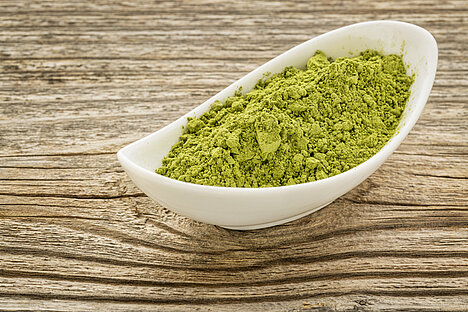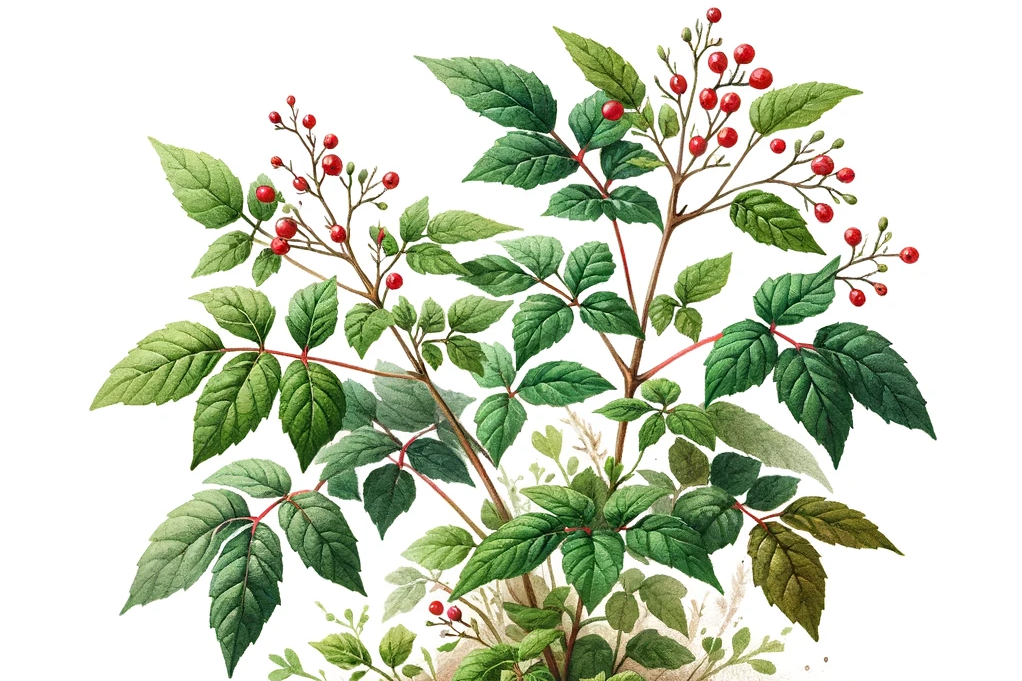Moringa

What is Moringa?
Moringa oleifera is a fast-growing tree that originated in India and is cultivated in many tropical and subtropical regions of the world. It is also known as the horseradish tree, drumstick tree or miracle tree. The leaves, seeds, pods, roots and bark of Moringa contain many nutrients such as vitamins, minerals, antioxidants, amino acids and fatty acids. Moringa is used in traditional medicine to treat various ailments such as inflammation, infections, diabetes, anemia and high blood pressure.
How can Moringa help dogs?
Moringa can also have health benefits for dogs. Some studies have shown that moringa can improve immune function, aid digestion, support skin and coat health and protect liver and kidney function. Moringa can also help regulate blood sugar levels, lower cholesterol and control blood pressure. Moringa can also act as a natural dewormer and ward off parasites.
How can Moringa be fed to dogs?
Moringa can be fed to dogs in various forms, such as fresh or dried leaves, powder, capsules or oil. The dosage depends on the size and weight of the dog, but a general recommendation is about 1/4 teaspoon of powder per 5 kg of body weight per day. You can simply sprinkle the powder over the food or mix it with a little water. The oil can also be drizzled on the food or given directly into the mouth. The fresh or dried leaves can be offered as a snack or as part of a homemade meal.
What are the possible disadvantages of Moringa for dogs?
Moringa is generally safe for dogs, but there are some potential downsides or side effects to be aware of. For one, moringa can cause allergic reactions in some dogs, such as skin rashes, itching or breathing difficulties. If you notice such symptoms, you should consult a vet immediately. On the other hand, excessive consumption of moringa can lead to gastrointestinal problems such as diarrhea, vomiting or flatulence. You should therefore always start with a small dose and observe your dog's reaction. You should also make sure that the dog drinks enough water to avoid dehydration. Finally, make sure that the dog does not eat any parts of the tree other than the leaves or seeds, as these can be poisonous.
Moringa is a nutrient-rich plant that can have many health benefits for dogs. However, you should always be careful and choose the right dosage and quality. In addition, you should always consult your vet before giving your dog a new supplement. This way you can make sure that Moringa is suitable for your dog and does not interact with other medications or illnesses.
If you notice any signs of hypersensitivity or poisoning in your dog, you should see your vet immediately. We are not a substitute for a vet, but we try to be as accurate as possible. Every dog reacts differently and we recommend you get a second opinion or consult your vet if in doubt.
Stay healthy and take good care of your four-legged friend!😊
Similar to Moringa
The rivet tree is a wonder of nature whose leaves, seeds and oil have been used for centuries in various cultures for medicinal purposes. While its benefits for humans are well documented, pet owners...
Baobab is the name of a genus of nine species of deciduous trees from the mallow family. The best known is the African baobab tree (Adansonia digitata), whose name is derived from the Arabic "bu...
Sleepberry, or ashwagandha, is a plant native to the arid regions of India, the Middle East and parts of Africa. It is known for its robust properties and has been used in traditional Indian...
The lansi tree contains a variety of ingredients that can be both nutritious and potentially harmful. The main components include: Pulp: Rich in vitamin C and antioxidants, it can be beneficial to...



